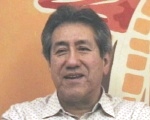
Pedro Acevez
Born in Wapato, Washington, Pedro Acevez was part of the first contingent of Chicano students to enroll at the University of Washington. He served as President of MEChA de UW and helped organize farm workers in the Yakima Valley as part of a United Farm Workers campaign in the early 1970s.
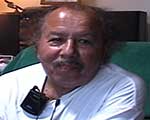
Emilio Aguayo
An artist and one of the first Chicano muralists in Washington State, Aguayo attended UW in the late 1960s and was active in both the Chicano and farm workers movements. His murals, including several at the University, remain key symbols of the Chicano movement that transformed the state and the university.
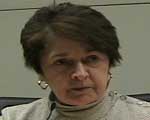
Theresa Aragon
Born in New Mexico, Theresa Aragon came to Seattle in 1968 to complete her PhD at UW. She soon became involved in efforts to create a Chicano Studies program, serving as interim director of that program in 1971. Off campus she served on Governor's Advisory Committee on Mexican American Affairs. She is currently a dean at Evergreen State College.
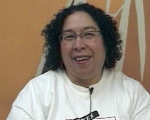
Yolanda Alaniz
The daughter of farm workers, Yolanda Alaniz was active in MEChA, the Brown Berets, the Freedom Socialist Party and Radical Women, in addition to writing for the UW Daily on Chicana issues. She now works as an archivist, preserving Chicano/a history.
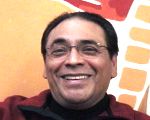
Juan Jose Bocanegra
Born in Mexico, raised in Texas, Juan Bocanegra moved to Seattle in 1971 to earn a graduate degree at UW. He quickly became active in the Chicano movement on campus and in the community, including the establishment of El Centro de la Raza. He also participated in the American Indian Movement struggles.
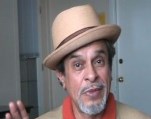
Daniel DeSiga
Chicano artist Daniel DeSiga was born in Walla Walla, Washington and participated in the University of Washington’s Chicano Movement during the early 1970s. His artwork evokes the tenets of el movimiento and expands Chicano/a art to include the life of migratory ethnic Mexican farm workers. He has been part of the foundation of Chicano/a institutions, including El Centro de la Raza and Colegio César Chávez.
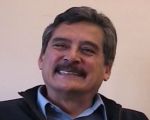
Guadalupe Gamboa
Co-founder of the UFW in Washington State, Lupe Gamboa , grew up in the Yakima Valley where his family worked in the fields. In 1967 he attended UW where he was involved in Chicano student activities, later returning to the valley where he and Tomas Villanueva launched the movement that became the United Farm Workers of Washington State. An attorney, he remains active in the labor movement.
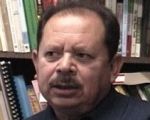
Erasmo Gamboa
As a student at the University of Washington in the late 1960s and early 1970s Erasmo Gamboa was a founding member of MEChA, organized the grape boycott in support of farm workers, and was instrumental in establishing the Chicano Studies Program. He later earned his Ph.D and now teaches American Ethnic Studies and U.S. History at UW.
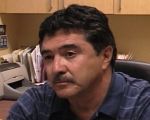
Sydney Gallegos
Sydney Gallegos was born into a farming family in New Mexico. In 1969, Gallegos came to Seattle to attend UW. One of the founders of MEChA, he was also active in El Teatro del Pioja, a guerrilla theater group. After earning his degree in dentristy, Dr. Gallegos helped found the Seattle chapter of the National Chicano Health Organization.
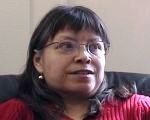
Rosalinda Guillen
Rosalinda Guillen helped lead the United Farm Workers campaign that resulted in a contract with Chateau Ste. Michelle winery in 1995. A native of Skagit County, she had worked in the fields when she was young, then built a successful career as a bank officer. She gave that up to devote herself to farm worker organizing.
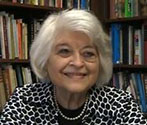
Phyllis Gutierrez Kenney
Representative Phyllis Gutierrez Kenney was one of the first Latinas to hold an elected state office. She served in the legislature from 1997 to 2013. She’s been an advocate for farmworkers and instrumental in passing legislation to assist both Latino and undocumented students to pursue a higher education and training programs for English language learners.
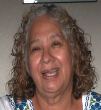
Carmen Miranda
Chicana educator, organizer, and labor advocate Carmen Miranda was born in, Texas in 1951. Her parents were migratory field workers and she traveled with them through Texas, Washington, and Idaho for work. Moving to Seattle in 1972, she joined El Centro de la Raza and began a long career as a child educator and vocal advocate of civil rights for people of color.
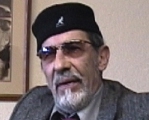
Roberto Maestas
Co-founder of El Centro de la Raza, Roberto Maestas first became involved in Chicano/ Latino activism in the late 1960s as a teacher at Franklin High School. He helped organize farm workers in the Yakima valley and students at UW and South Seattle Community College before leading the effort that created El Centro.
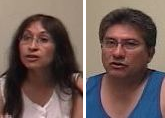
Frank Martinez and Blanca Estella Martinez
Frank Martinez and Blanca Estella met at the UW during the 1970s. Active in MEChA and the farm workers movement, they were also principle actors and organizers of Teatro del Piojo, the activist Chicano theater troup that performed throughout the Pacific Northwest during the 1970s.
Ricardo Martinez
Judge Martinez grew up in Lynden, WA when his family moved there from Texas. Attending UW in the early 1970s, he was active in MEChA. After earning a law degree, he became a King County deputy prosecutor, a Superior Court judge, and since 2004, a U.S. District Court Judge.
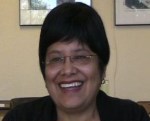
Estela Ortega
Estela Ortega is the current executive director of El Centro de la Raza. She was born in Houston, Texas and became part of Seattle’s Chicano Movement in the early 1970s. Her commitment to the Movement led Estela to volunteer at El Centro de la Raza, becoming an early leader at the center and a key Chicana activist.
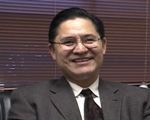
Rogelio Riojas
Born in Texas and raised in Eastern Washington, Riojas enrolled at UW in 1969 and became a leader of the Chicano movement, active in both MEChA and the Brown Berets. Later earning a degree in Health Administration, he has been the director of the Sea Mar Community Health Centers for the past 28 years.
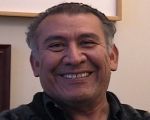
Jesus Rodriguez
Jesus Rodriquez was a Chicano movement student leader at Texas Western University (now UTEP) before joining the UW's Chicano Studies program as a graduate student. A student-activist, Rodriquez was an active member of MEChA, the Brown Berets, a co-founder of SeaMar Community Health Centers.
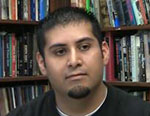
Oscar Rosales
Oscar Rosales was involved with UW MEChA, El Comite Pro-Reforma Migratoria y Justicia Social and the May 1st Action Coalition during the 2006 immigrant rights movement. Rosales continues to be an organizer for immigration reform and workers’ rights issues in Seattle.
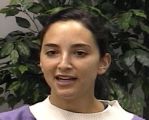
Rebecca Saldaña
Raised in Seattle, Rebecca Saldaña is an activist and labor organizer. Involved in farmworker solidarity efforts with PCUN and the United Farmworkers, she worked on Fair Trade Apples campaign. Currently she organizes janitors with SEIU Local 6 and is a board member of STITCH.
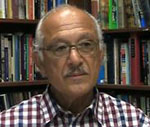
Ricardo Sanchez
Sanchez was Director of El Concilio for the Spanish Speaking of King County that called attention to the dearth of Latinos hired by the county, organized cultural events, and published a newspaper called La Voz. In 1998, Sanchez founded LEAP, which played an instrumental role in introducing legislation for in-state tuition and financial aid for undocumented students.
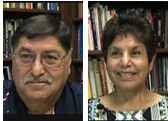
Tomas and Julia Sandoval
The Sandovals were part of the first large cohort of Chicanos recruited by the UW in 1968. They were founding members of UMAS and involved with the anti-Vietnam War movement. From 1972 to 1974, Tomas Sandoval was the Director of Activos Mexicanos that provided transition services to Chicanos relocating to Seattle such as emergency housing and job referrals.
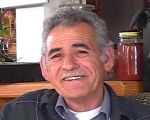
Tomas Villanueva
Founder and past President of the United Farm Workers of Washington state, Tomas Villanueva was 14 when his family immigrated from Mexico, settling in Toppenish three years later. Since the mid 1960s, he has devoted his life to the struggle to unionize farm workers
